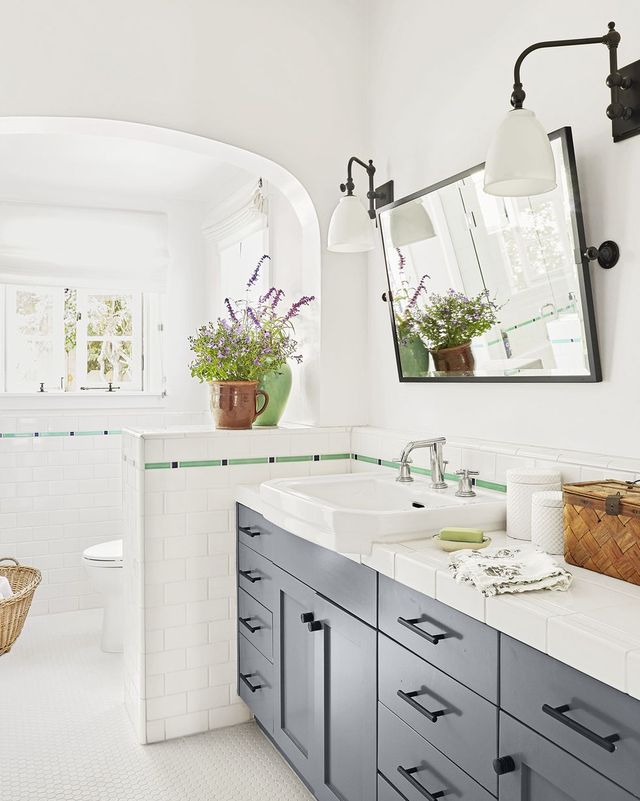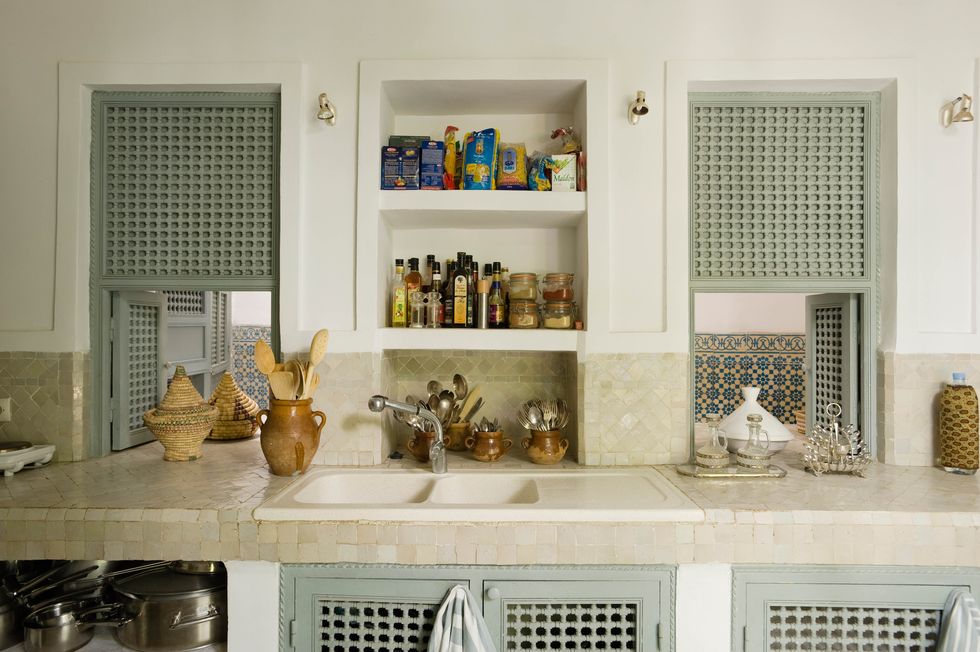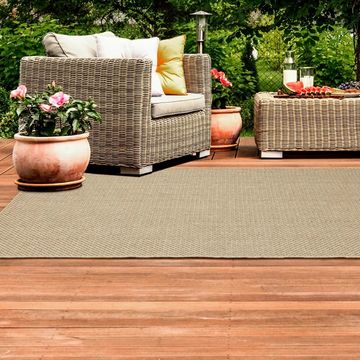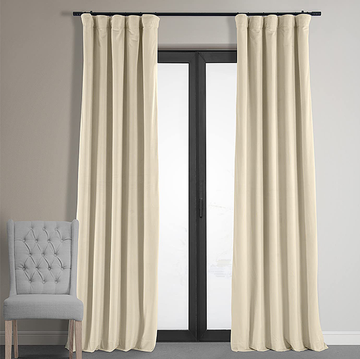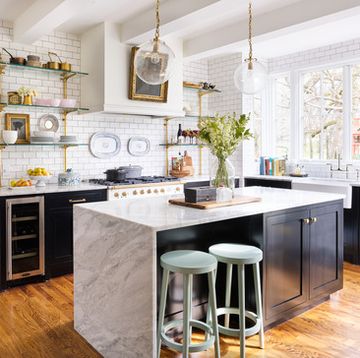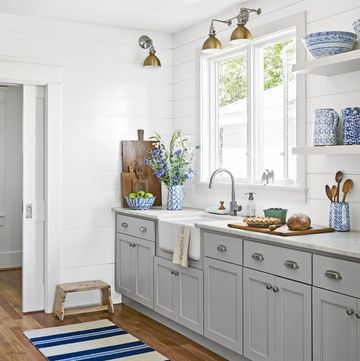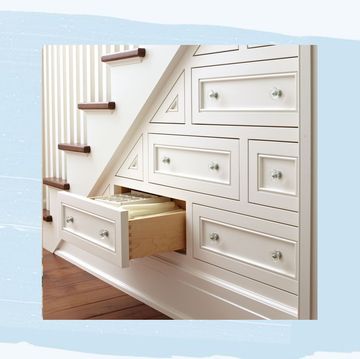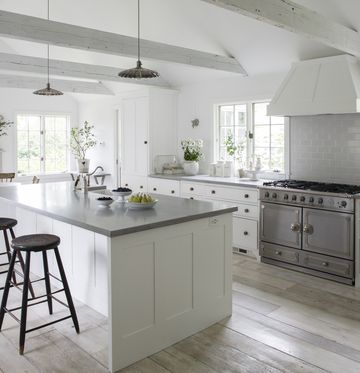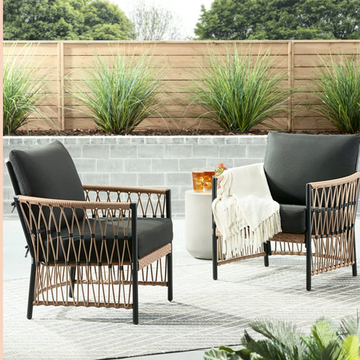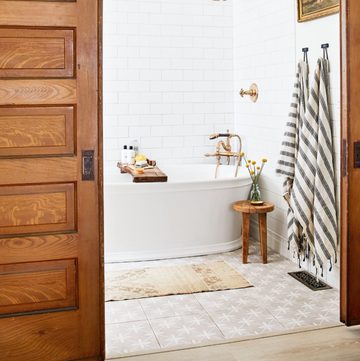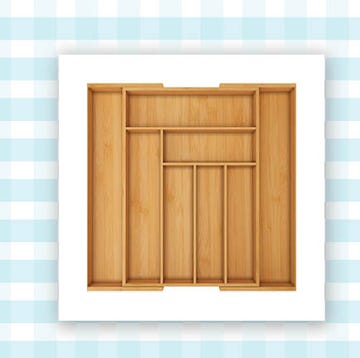Tile isn't just for backsplashes and bathroom floors. Mosaics can also make up the material for countertops. Popular in the '70s and '80s, tiled bathroom and kitchen countertops can still found today, especially in Arts and Crafts-inspired homes. But when it comes to installing new tile counters, experts have mixed opinions.
Sure, tile adds pattern and texture to a room. However, since the surface isn't as smooth as, say, its butcher-block and concrete counterparts, tile can be tough to keep clean—especially the grout, which is quite porous. From the different types and costs to the pros and cons, here's what homeowners should consider before taking a walk on the tiled side.
Types of Tile Countertops
There are many different materials on the market, but the pros recommend natural stone and porcelain for bathroom and kitchen countertops.
More From Country Living

Natural stone won't show chips or imperfections as clearly, explains Angelica Baeza of Arizona Tile, one of the state's leading showrooms, but it does require regular sealing. Meanwhile, less maintenance is needed with porcelain tile, but flaws will be more noticeable.
"New advancements in porcelain tile actually allow for the ceramic tile to be cut, polished, and installed similar to a solid surface or natural stone installation, minimizing or reducing seams or grout joints," Bart Bettiga, executive director of the National Tile Contractors Association, tells us, adding that the new technology also allows a wider variety of colors and styles.
"Tiles to perhaps steer away from include products with a high glaze not suitable for countertop use," he continues. "Always check with the tile supplier for service ratings for these products and ask in writing for a report to indicate if it is acceptable to use on countertop surfaces."
Pros and Cons of Tile Countertops
Pro: Variety. Like we said, you've got options—both in appearance and in price. Beyond material type, choose from a wide range of colors, shapes, and sizes.
Con: They're susceptible to stains and bacteria. "As a porous surface, grout must be sealed annually to safeguard against staining," Baeza explains. "Even so, this might not be enough to prevent all stains. Perhaps most importantly, the porous nature of grout lines allow for bacterial absorption; especially when handling and preparing uncooked food."
Pro: Some of that can be prevented. According to Bettiga, the aforementioned issue "stems from using materials with grout joints, making it more difficult to maintain and clean." Instead, select panels or slabs and use epoxy grout specifically designed for countertop use.
Con: They're not the most durable. Though heat-resistant and (to a point) scratch-resistant, tile countertops can also chip. Ceramic is much softer than natural stone, Baeza points out, and is therefore especially susceptible.
Pro: It's easier to replace one tile than an entire slab. When one area is broken, it can be swapped out with some replacement tiles.
The Cost of Tile Countertops
Depending on the material you choose, you could pay anywhere from $1 per square foot to $15 per square foot, by Bettiga's estimates.
"Ceramic tiles are generally less expensive to install than other countertop materials and the new gauged porcelain tile panels and slabs that are available are comparable in price to other materials," he says. "Because you are not generally purchasing material that encompasses a lot of square feet, it is best to focus on the right product, design, and suitability."
With enough research and the proper preparation, homeowners may be able to handle certain installations themselves, but larger panels and slabs should be left to the professionals. Ask your tile supplier to refer you to a quality company. Installation rates will also vary by project, so collect quotes and compare to the cost of other surfaces.
Must-Have Tile Tools



